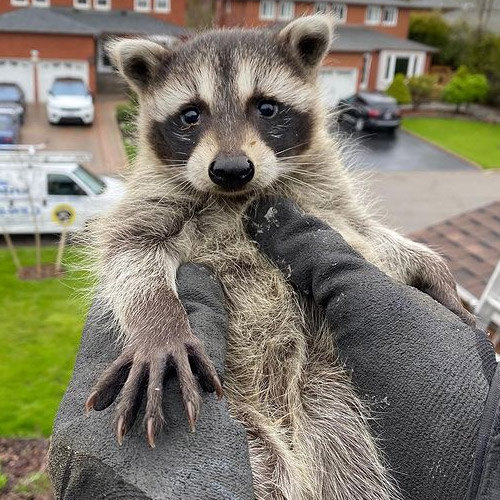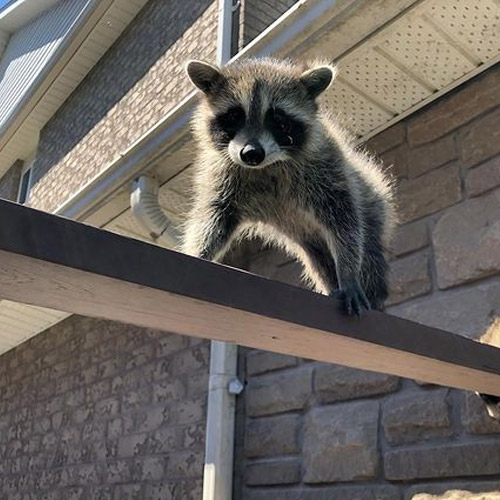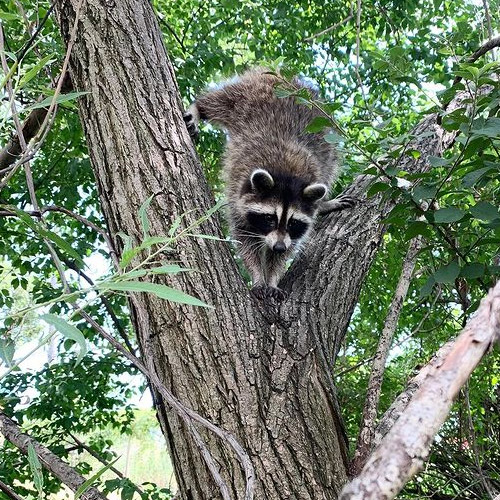Home / Wildlife Control Services in Vancouver / Racoon Problems
Raccoon Problems
Everything You Need To Know About Raccoons
A variety of raccoon problems can occur when they decide to nest within a residential or commercial structure. Some of these raccoon problems are easily remedied while others can have very negative impacts on both the buildings and the people that inhabit them. The following are some common raccoon problems and some warning signs for you to look out for:
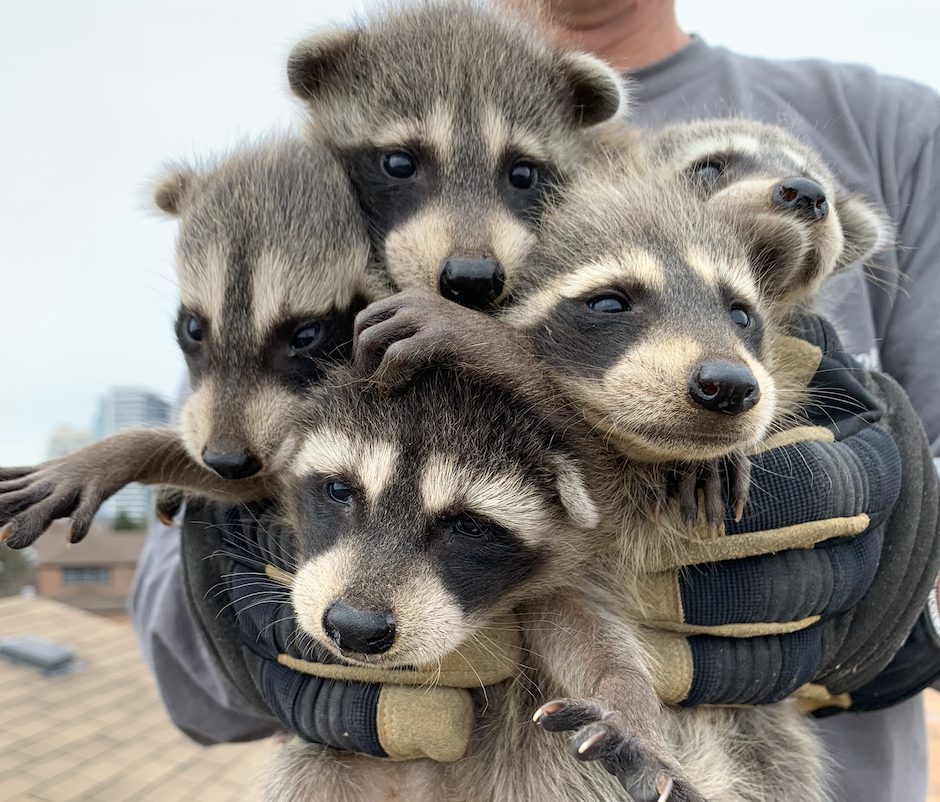
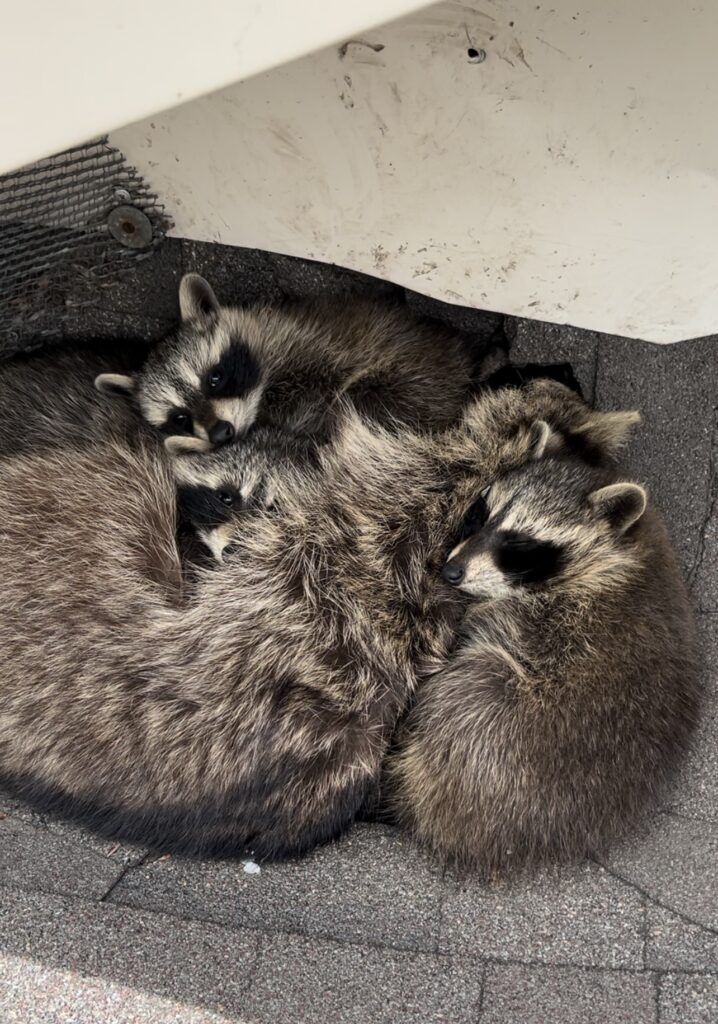
Property Damage
Raccoons can cause substantial damage both in gaining access to homes and businesses and with inside damage. Sometimes raccoons will find an existing opening into a building and other times they will rip open a week area creating a lot of damage.
Ripping and tearing: Raccoons have very manipulative paws and are very strong. They are clever enough to open jars, doors, garbage cans and door latches. But worse, they will often rip up soffits, flashings, shingles, siding and aluminum to gain entry to a potential den site.
Insulation: Raccoons enjoy making their dens in warm, dry and quiet spaces. As such, attic insulation can quickly become damaged when trampled on or littered with urine and feces, although it is not common in most cases for raccoons to defecate in their den site (except during baby season). It is also not uncommon for raccoons to displace areas of insulation creating zones where heat is able to escape living spaces. Also, in areas like crawlspaces it is common for raccoons to pull insulation down from the floor space above in attempts to find access leading up out of the crawlspace.
Drywall: Because raccoons are larger animals, if and when they do urinate inside the structure of a building, the amount of urine expelled is a substantial amount of liquid as to severely damage drywall. If this happens a number of times the drywall can become soaked and rotten to a point where the weight of the raccoons is enough to break the drywall and have them come crashing to the room below.
Electrical: Because raccoons are strong and have nimble paws, they can easily expose or tear electrical wires. Obviously, property damage is of concern but even more so is the risk to the lives of the people occupying the building.
Breeding
Once per year: Male raccoons will attempt to mate with multiple partners each season whereas the female will mate with only one male, avoiding all others afterwards. Mating occurs during the winter months but can continue until June. This prolonged mating season makes it essential for wildlife technicians to detect if there are any babies present during the initial assessment. Offspring are born about 9 weeks after mating. It is not uncommon for mothers to make a last minute den to give birth in which is why urban structures are so attractive.
Litter size: The gestation period is around 63 days. Female raccoons produce litters between 1 and 7 offspring (typically 3 or 4).
Rearing: Newborn raccoons are blind and deaf for their first three weeks but grow quickly. They are cared for exclusively by the female who teaches them how to forage for food and shelter. One of the main threats to young raccoons is predators such as the coyote. Young raccoons will typically stay with their mother through the first winter after which they gradually leave..
Sexual maturity: Female raccoons can begin to breed at one year of age whereas males tend to begin later at the age of two.
Health and Safety Risks
Rabies: Rabies is not considered a significant problem in Vancouver or the surrounding areas. While raccoons can carry rabies, cases of rabies in raccoons or other wildlife are rare in British Columbia. The province has strict protocols in place for monitoring and managing potential rabies cases to prevent its spread. However, it’s always essential to take precautions when dealing with wildlife, such as avoiding contact and ensuring pets are vaccinated against rabies.
Roundworm: Feces of raccoons is commonly infected with a roundworm known as Baylisascaris. If ingested, they can cause a number of symptoms ranging from nausea to blindness loss of muscle control and even death. Further, roundworm eggs are very resilient and can be dispersed through water runoff, dirt and building materials. If you have any questions about raccoons or concerns related to their health risks, you can explore the Raccoon FAQ for more detailed information
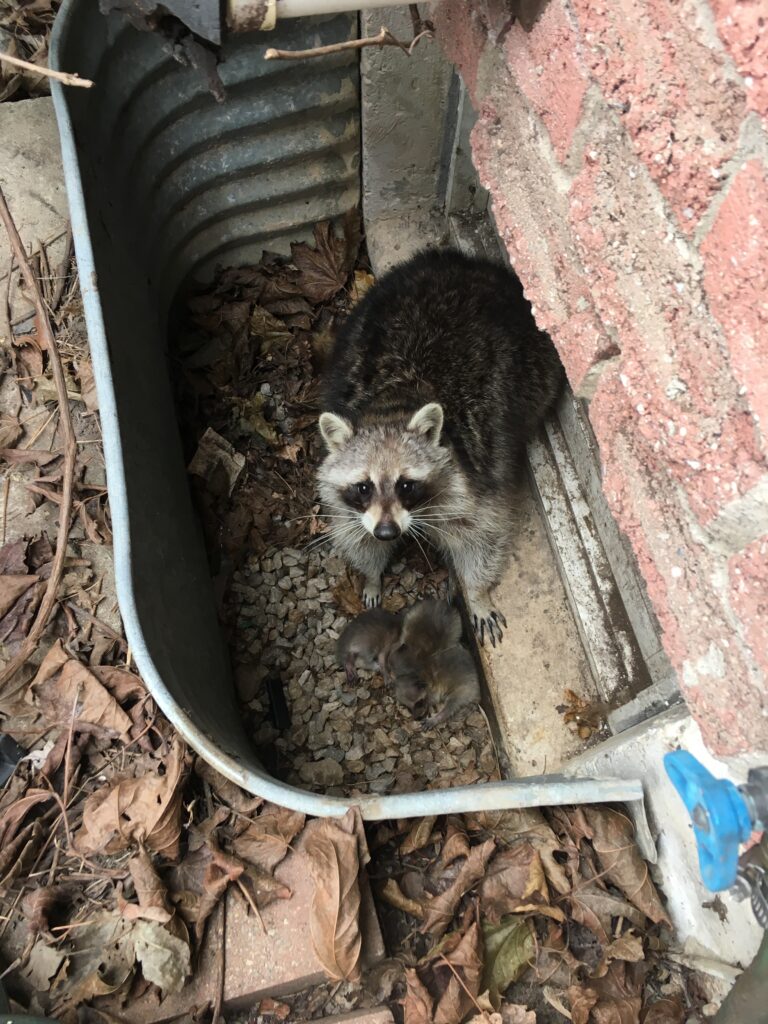
Morphology and Lifestyle
- Body length: 18-30 in
- Tail length: 8 – 13 in
- Weight: Average of 25lbs but up to 46 lbs
- Habitat: Warm, dry and quiet spaces
- Call: Raccoons can emit a large number of whimpers, churrs, snarls and squeals
- Lifespan: 10 or more years in the wild
Did You Know?
- Raccoon fact: The raccoon has very dexterous paws and are intelligent enough to twist handles and open doors.
- Raccoon fact: When in distress, baby raccoons can sounds like human babies.
- Raccoon fact: Their motherly instinct in is very strong and they will cause major damage if separated from their young.
- Raccoon fact: Raccoons can have as many as 5 or 6 den sites in a residential area.
- Raccoon fact: Raccoons prefer to wash their food before eating it.
- Raccoon fact: Raccoons can carry the rabies virus without showing any signs or symptoms.
More About Racoon

Humane Raccoon Removal

Humane Skunk Removal

Humane Squirrel Removal
Do It Yourself Dangers
For those who may be tempted to take on the task of removing animals and animal proofing themselves, it is important to remember that it can be a dangerous undertaking. Falling off ladders and roofs while attempting to remove animals or seal entry points can result in serious bodily harm. In some cases, even aggressive animals can pose a danger to those trying to remove them. It is best to leave these tasks to experienced professionals who have the knowledge and equipment to safely and effectively handle wildlife removal and animal proofing. Attempting to do it yourself can put you at risk of injury and potentially even more damage to your home.










